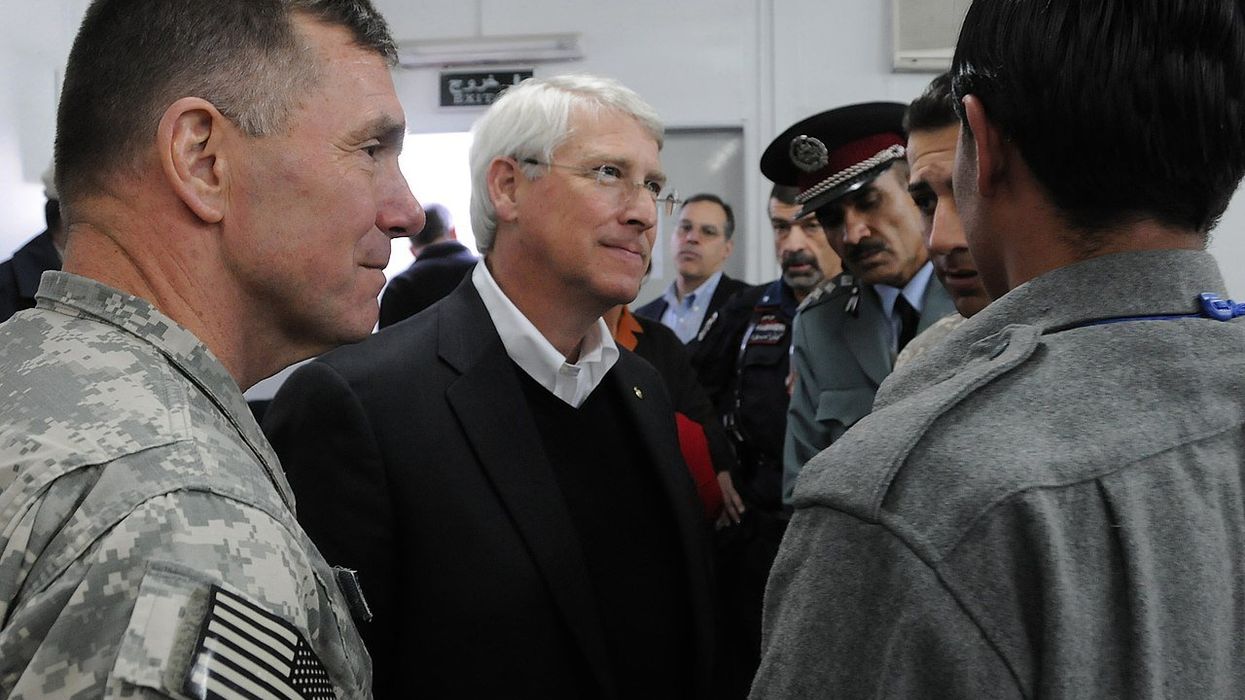'Warfighting structure': Trump policy puts him on 'collision course' with GOP


President Donald Trump's views on the North Atlantic Treaty Organization (NATO) are radically different from those of his predecessor, former President Joe Biden. While Biden championed NATO's expansion and viewed participation in the alliance as crucial to the United States from a national security/foreign policy standpoint, Trump is a vehement critic of NATO.
In Trump's view, NATO takes a lot more from the U.S. than it gives in return. And according to NBC News sources in the U.S. Department of Defense, the Trump-era Pentagon (led by Defense Secretary Pete Hegseth) is considering giving up the United States' longtime role as supreme commander of NATO in Europe.
Retired Adm. James Stavridis, former NATO supreme allied commander, is vehemently opposed to that idea. And he isn't the only military expert who feels that way.
READ MORE: 'Clear and present danger': Experts alarmed at 'insanity' of Musk getting secret war plans
The Hill's Alexander Bolton, in an article published on March 21, reports that Trump is "on a collision course with Republican defense hawks over the question of whether the United States should continue its 75-year military leadership of NATO and at what level of commitment."
"Withdrawing from NATO's Supreme Allied Commander Europe command structure would signal diminished U.S. involvement in NATO and could eventually spell the end of the alliance as it has been known for 75 years," Bolton explains. "It would be politically difficult to place U.S. armed forces under the command of a European ally when United States defense spending accounts for roughly two-thirds of all NATO countries' combined defense spending."
In a joint statement released on March 19, Senate Armed Services Committee Chair Roger Wicker (R-Mississippi) and House Armed Services Committee Chair Mike Rogers (R-Alabama), declared, "We will not accept significant changes to our warfighting structure that are made without a rigorous interagency process, coordination with combatant commanders and the Joint Staff, and collaboration with Congress."
The following day, Sen. Mitch McConnell (R-Kentucky) — former GOP leader in the U.S. Senate — issued a statement saying, "Weakening American leadership won't strengthen NATO or U.S. interests. If we're serious about encouraging more capable European allies, retreating from our position as the leader of the trans-Atlantic alliance would be an odd way to show it."
READ MORE: 'Red flag': Alarm as judges face threats of violence after ruling against Trump
Danielle Pletka of the American Enterprise Institute is speaking out as well.
Pletka told The Hill, "Congress absolutely has a say in the structure of our command. Congress absolutely has a say in how we resource our defense and our alliances. If the Pentagon isn't keeping these really important Republican members in the loop, that's a major problem."
READ MORE: Sabotaging Social Security: Behind the leaked memo to cut agency staff and critical services
Read The Hill's full article at this link.